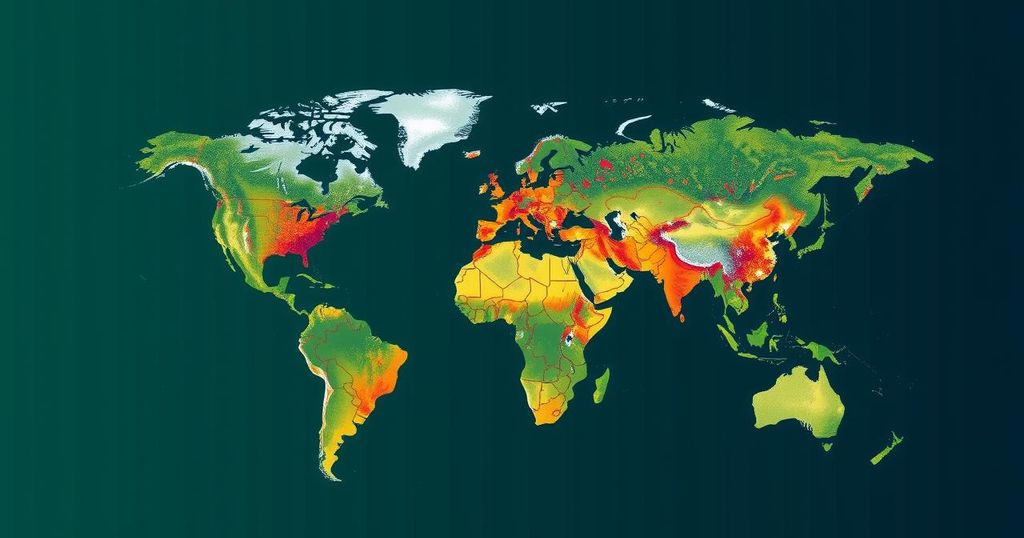UNEP Urges Immediate Action to Bridge Emissions Gap for Climate Stability
The United Nations Environment Programme (UNEP) has urged nations to significantly reduce greenhouse gas emissions by 42 percent by 2030 in its Emissions Gap Report 2024 to mitigate climate change. The report claims that achieving the 1.5 degrees Celsius goal remains feasible with a transition to cleaner energy and habitat restoration. It highlights the current record high emissions and emphasizes the role of renewable energy in meeting carbon reduction goals.
The United Nations Environment Programme (UNEP) has emphasized the urgent need for nations worldwide to address the considerable emissions gap highlighted in new climate pledges. In its latest Emissions Gap Report 2024, entitled “No More Hot Air…Please,” UNEP has called for a collective reduction of greenhouse gas emissions by 42 percent by the year 2030. This significant cut is deemed essential to mitigate the detrimental consequences of global warming. The report indicates that maintaining global temperature increases within the 1.5 degrees Celsius framework established by the Paris Agreement is achievable, provided that there is a committed transition to cleaner energy sources and efforts to restore natural habitats. Inger Andersen, Executive Director of UNEP, articulated that if nations adhere to their carbon reduction commitments, many climate-induced calamities—such as severe floods, droughts, cyclones, and wildfires—could be significantly averted. “Every fraction of a degree avoided counts in terms of lives saved, economies protected, damages avoided, biodiversity conserved and the ability to rapidly bring down any temperature overshoot,” Andersen stated. Ahead of the upcoming UN Climate Change Conference in Baku this November, the report underscores a troubling trend: greenhouse gas emissions have reached an all-time high of 57.1 gigatons of carbon dioxide since 2019. Moreover, it highlights that advancements in wind and solar photovoltaic technologies could potentially contribute to a 27 percent reduction in emissions by 2030 and an impressive 38 percent by 2035. The report further advocates for an immediate halt to deforestation, alongside robust initiatives to enhance the greening of transportation, buildings, and industrial practices as critical measures for meeting carbon reduction goals.
The UNEP’s Emissions Gap Report serves as a crucial document in assessing global progress towards reducing greenhouse gas emissions. The report was released ahead of the UN Climate Change Conference, where nations will convene to negotiate and convene strategies for addressing climate change. The 1.5 degrees Celsius target set by the Paris Agreement is recognized as vital in preventing the worst impacts of climate change. The deterioration in ecological conditions necessitates immediate and robust actions, particularly in improving renewable energy technologies and conservation practices to combat the ongoing rise in emissions, which, as the report indicates, have reached alarming levels recently.
The UNEP’s urgent appeal for nations to narrow the emissions gap highlights the significant responsibility that countries hold in tackling climate change. By committing to substantial reductions in greenhouse gas emissions and advancing sustainable practices, the global community can work collectively towards mitigating the impacts of climate change. The report’s call to action underscores the increasing potential of renewable energy technology and the imperative to preserve natural ecosystems as integral components of global climate strategy.
Original Source: www.socialnews.xyz




Post Comment